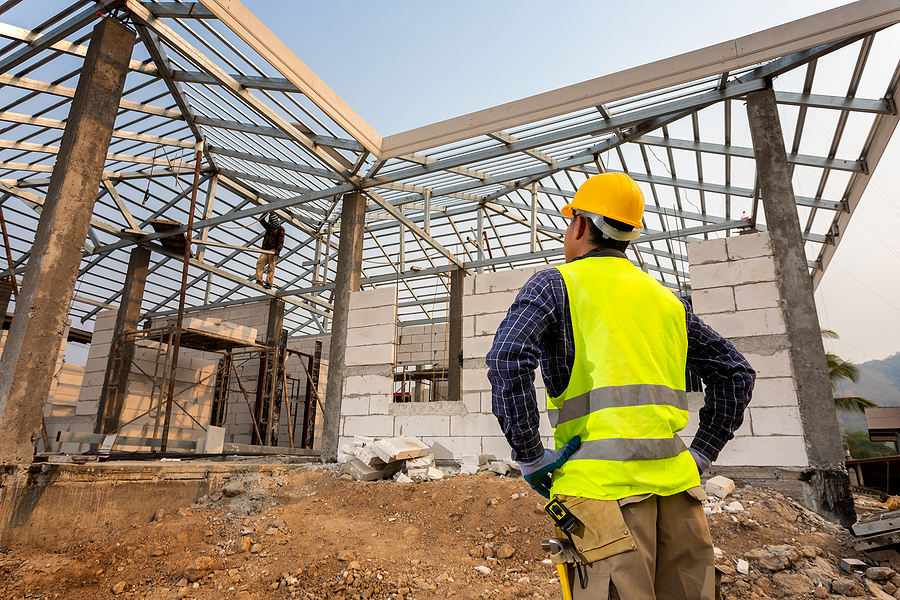
Technology has become a cornerstone for efficiency and sustainability in the competitive construction field. An area witnessing significant transformation is integrating cutting-edge software solutions to streamline project management and enhance productivity. We delve into the latest advancements in this domain, exploring how they shape the future of construction.
The Rise of Automation and AI in Construction
The construction industry increasingly turns to automation and artificial intelligence (AI) to tackle complex projects. These technologies are not only revolutionising how tasks are executed but also improving safety standards. Automated machinery, for instance, can perform repetitive tasks with precision, reducing the risk of human error and workplace injuries.
AI plays a pivotal role in predictive analysis and decision-making. By processing vast amounts of data, AI algorithms can forecast project timelines, budget requirements, and potential challenges. This foresight is invaluable in preventing cost overruns and ensuring timely completion of projects.
Enhancing Collaboration with Cloud-Based Platforms
Collaborative efforts are at the heart of successful construction projects. Cloud-based platforms are proving instrumental in this regard, enabling real-time communication and data sharing among team members, regardless of their location. These frameworks offer a centralised hub for project documents, blueprints, and updates, ensuring everyone is on the same page.
Moreover, cloud technology facilitates remote monitoring of construction sites, allowing project managers to oversee progress and address issues promptly without being physically present. That capability is particularly beneficial for large-scale projects spread across multiple locations.
Sustainable Practices Through Green Technology
Sustainability is a pressing concern in the construction industry. Green technology solutions are being employed to reduce the environmental impact of construction activities. These innovations, from energy-efficient building materials to waste reduction techniques, pave the way for more sustainable practices.
One notable example is the use of Building Information Modeling (BIM). BIM creates detailed digital representations of buildings, enabling architects and engineers to plan and execute projects with minimal waste and energy consumption. This approach conserves resources and reduces the overall carbon footprint of construction projects.
Streamlining Project Management with Affordable Construction Software
In managing these technological integrations, the role of affordable construction programs becomes crucial. These software solutions offer comprehensive tools for budget tracking, scheduling, and resource allocation. They simplify the complexity of managing various aspects of a construction project, making it accessible even for small and medium-sized enterprises.
Adopting affordable construction software significantly shifts towards more efficient and cost-effective project management. By leveraging these tools, construction companies can achieve better coordination, reduce operational costs, and deliver projects successfully within the stipulated timeframe.
Future Outlook: Embracing Technological Innovations
As we look to the future, the construction industry’s embrace of technology will continue to evolve. The integration of virtual reality (VR) and augmented reality (AR) is on the horizon, offering immersive ways to visualise and plan construction projects. These technologies can transform how we conceive architectural designs and interact with the built environment.
The ongoing development of smart cities also underscores the importance of advanced technologies for commercial projects. It is a topic that industry members and professionals discuss and offer advice on. These urban spaces, equipped with IoT devices and smart infrastructure, require meticulous planning and execution, underscoring the need for sophisticated software and technological tools.
Conclusion
The construction industry is undergoing a remarkable transformation driven by new technologies. From AI and automation to cloud-based collaboration and sustainable practices, these innovations are reshaping the landscape of construction. Central to this evolution is the use of accessible construction software, streamlining project management and fostering efficiency.
As technology advances, the construction sector must remain agile, embracing these changes to build smarter, safer, and more sustainable environments. The future of construction lies in the seamless integration of technology, a journey that promises to revolutionise the industry.





About The Author: Wanda Martinez
More posts by Wanda Martinez